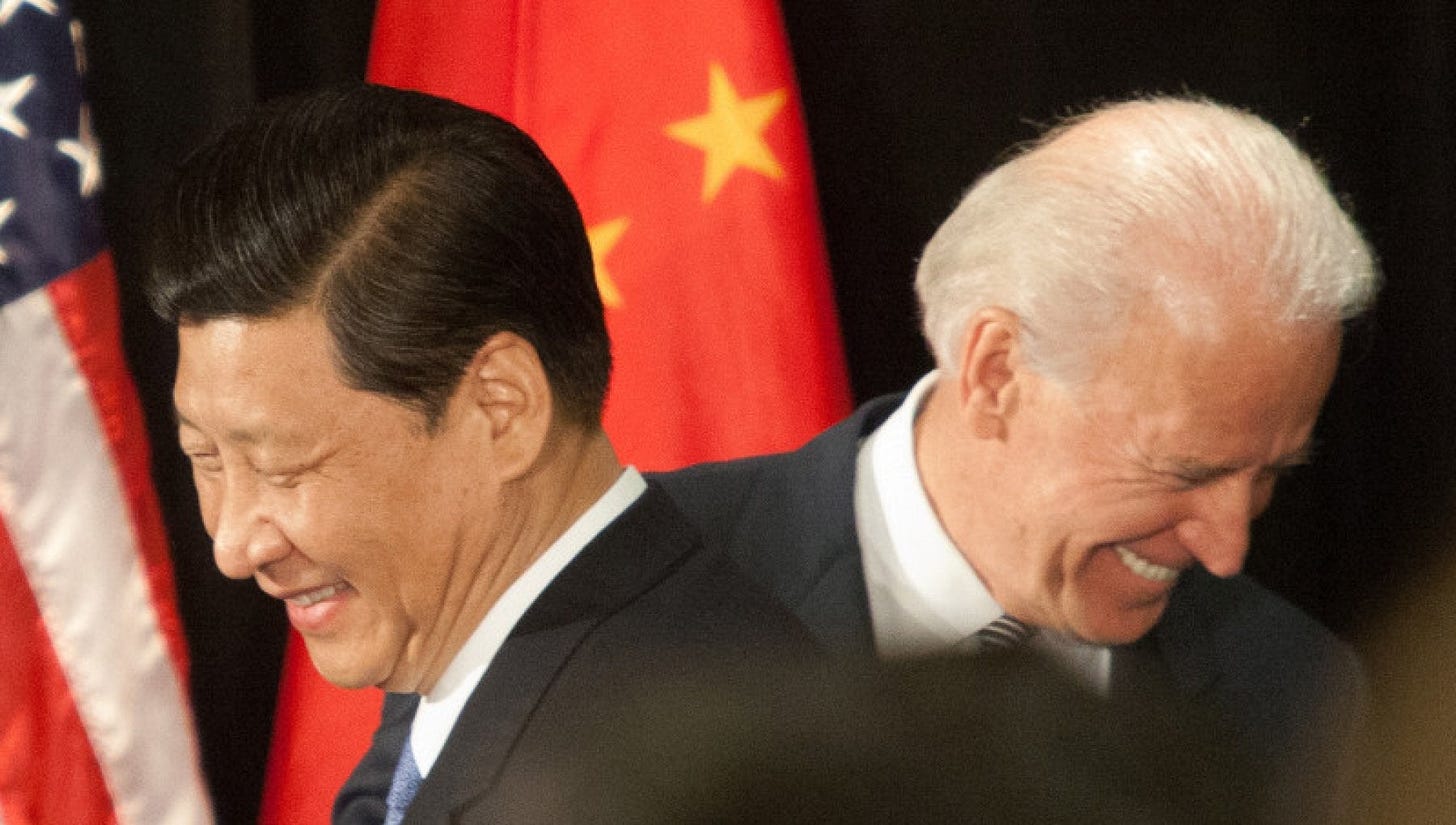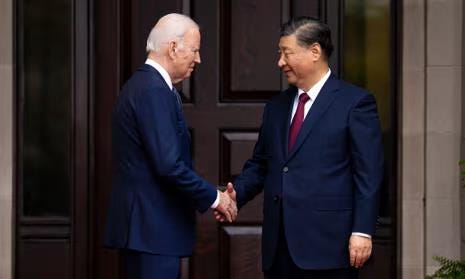New Peace
So long as Australia is dependent upon America for national defence, we must pay close attention to its involvement in world affairs.
Written by Percy Spender, find more of his content on 𝕏 @PercySpender
Last December, Chinese president Xi Jinping visited the United States of America for a meeting with American president Joe Biden, Xi’s first trip to US in six years. The aim of the trip being to smooth over the rocky few years that US-China relations have endured in the post covid era. Anti-CCP rhetoric has grown increasingly commonplace in political discourse over the last few years, highlights in this evolving antagonism include a ramping up trade war, the Covid Wuhan origin investigation and a Chinese balloon being shot down over the United States.
Both delegations noted a positive meeting between the two leaders who were eager to display constructive diplomacy. China in particular mentioned, in their official report posted on the Ministry of Foreign Affairs website, hopes that the meeting would be a clean start for relations and set a course for improving and developing relations. The meetings went well and the two heads of state agreed to continue regular contact and agreed to work together on the Fentanyl issue plaguing America, resume military communication and begin discussions on the dangers posed by artificial intelligence.
All this may seem rather paltry on the surface but in actual fact it is a very positive outcome - especially for Biden who is in dire need of a success in the realm of foreign policy following the Afghanistan withdrawal, war in Ukraine and the Israel invasion of Gaza. These examples of incompetent diplomacy are going to count as major strikes against Biden going into the 2024 election.
Xi Jinping used the summit to reassure foreign investors that China is a reliable business partner, a pressing task as China grapples with domestic economic issues. Xi wants to present China as a global power and is succeeding, China is beginning to carry serious political weight now, especially in the Middle East where it has entered numerous trade relations. Of particular note is China’s relationship with Iran and the Taliban-led Afghanistan government; China has tripled its imports of Iranian oil over the last two years, and entered a deal with Afghanistan to expand oil imports worth over 150 million USD per year. Lastly, China flexed its newfound geo-political sway by cementing a surprisingly peace agreement between Saudi Arabia and Iran, two adversaries who were locked in a cold proxy war over the past four decades. This peace was, frankly, ground-breaking - the United States have been officially seeking peace in the region since its first Gulf War in 1991, and yet it was China who made tremendous progress, seemingly out of the blue.
Friction between the two nations will inevitably grow, as in any case where the American global hegemon finally has a competitor, but for now both leaders are focused on peace and strengthening ties. This comes at a high stakes time with the Taiwan general election in January and the US election in November; both will have important geopolitical consequences and will shape US-Sino relations for years to come.




